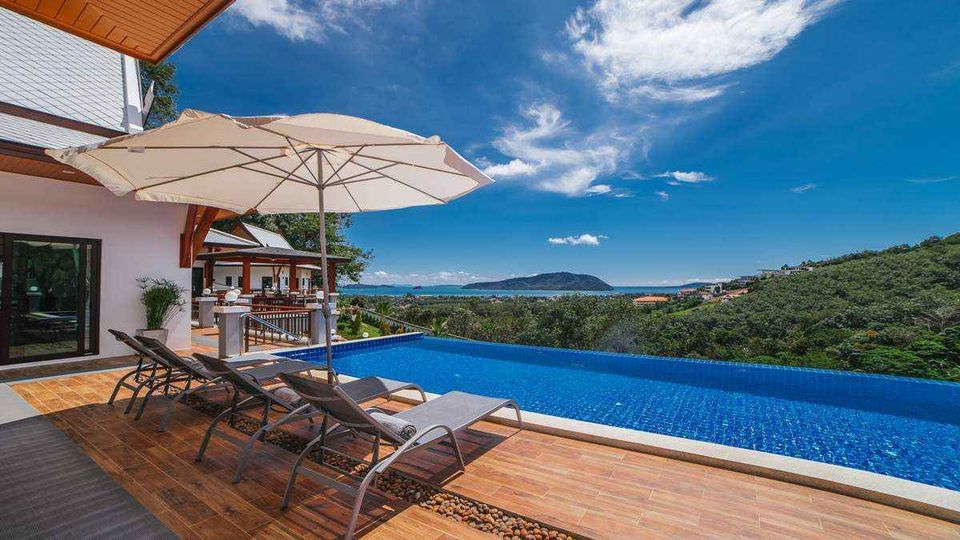Which coast of Thailand is the best?

18 Best Beaches in Thailand
- Sairee Beach, Koh Tao
- Hua Hin Beach
- Koh Poda
- Klong Muang Beach, Krabi
- Koh Gai, Krabi
- Maenam Beach, Koh Samui
- Bophut Beach, Koh Samui. Bophut Beach | Photo Copyright: Meagan Drillinger
- Lipa Noi, Koh Samui. Lipa Noi Beach | Photo Copyright: Meagan Drillinger
Which region in Thailand has the most beautiful island? Koh Lanta. The idyllic island of Koh Lanta is certainly one of the most famous islands in Thailand. It is located in the south of the country, on the west coast of the Andaman Sea and is one of the islands that you must see and experience.
Is 100 dollars a lot in Thailand?

The good news is that $100 is a pretty solid amount to start with every day in Thailand, and this is what it will get travelers while they’re there.
What can 1 US dollar buy in Thailand? Four liters of drinking water (1 gallon), or 1.5 liters of sparkling water. One hour of talk on your mobile phone in Thailand using the 1-2 Call SIM card. Similarly, if your phone and your laptop have bluetooth capability, you can surf the internet for 60 minutes.
How much money do you need per day in Thailand?
You should plan to spend around 3,246 THB ($92) per day on your Thailand vacation, which is the average daily price based on other visitors’ spending. Previous travelers spent, on average, 481 THB ($14) on meals for one day and 384 THB ($11) on local transportation.
Is 1000 USD enough for Thailand?
So let’s get into it “How long can you live in Thailand on 1000 USD? A budget of $1000 is enough for a person to live in Thailand for 4-8 weeks. This will include accommodation ($7), 3 meals ($6), 3L of water ($2), transport ($2) per day. This comes to a total of $510 per month.
What can $100 get you in Thailand?
In Thailand, USD $100 can get you 10-15 meals from any number of Bangkok street food stalls, 300 Thai beers, 2-5 nights in a three-star Phuket beach resort, 60-140 one-way journeys on the Bangkok rail system (BTS/MRT), 2-3 one-way flights between Bangkok and Phuket.
Which side of Phuket is better?

Safest Areas in Phuket: Mai Khao, Nai Yang, and Nai Thon away from the crowds, bars, and traffic. These are the delightful beach areas of Mai Khao, Nai Yang, and Nai Thon (see above).
Which side of Phuket has the best beaches? The beaches centered around Phuket’s southwest coast (Patong, Karon, Kata) are the busiest, lined with beach bars, cafes and jet ski operators – buyer beware of the latter. For a more low-key experience, head to west coast honeys Surin, Bangtao and Layan.
Is East or West Phuket better?
The east coast has better views eventually because often the west coast views are just water (Andaman sea) where the east coast has islands and Kaban Panwa in the views. Phi Phi can get very crowded, especially anywhere near the ferry landing. Ko Lanta is much calmer and probably suits your style better.
Is Phuket or Patong better?
Patong if you are looking for beaches. Phuket town is worth a visit for a walking tour as there are some fabulous old buildings and architecture plus lovely cafes and shopping. Tourists tend to stay in beaches like Patong, Kata, Karon etc. Just be aware that Patong is the busiest place to choose from all of the beaches.
Where should I stay in Phuket for the first time?
In general, the best areas in Phuket for the first time are Kamala, Nai Yang, Mai Khao, Patong, Kata, Karon and Rawai. Each of these recommended areas is suitable for a different type of traveler, ranging from luxury or budget travelers to party hedonistic travelers.
But that doesn’t mean you can’t find a quiet paradise to call your own. Phuket has all the infrastructure needed to make moving there an easy transition. It is Thailand’s largest island, with a population of nearly 600,000, with 115,000 expats from around the world making it their home.
What is middle class salary in Thailand?

Thailand’s middle class is currently emerging, and it is predicted that about 13 percent of households will earn at least 525 thousand Thai baht by 2020.
What is a good annual salary in Thailand? An average of approximately 1,160,000 THB annually. In addition to fixed wages, employees are offered wages based on compensation and hourly work. The average monthly salary rate in Thailand is around 96,000 THB ($2904). With an average salary of 103,000 THB, 50% of the population earns a decent annual amount.
What percentage of Thailand is middle class?
This class transition is called “development of economic classes”. According to the report, in 2015 Thailand’s middle class made up 35% of the population. Fifty-five percent of the population was identified as economically secure. The rest were economically vulnerable, moderately poor and extremely poor.
What is considered a high salary in Thailand?
Thailand has a salary of 24,500 THB (734 USD) to 433,000 THB (12984 USD) in a month. And its average monthly salary is 96,900 THB ($2904). The country has an average salary of 103,000 THB per month, which implies that 50% of the Thai population earns more than 103,000 THB, while the other 50% earns below 103,000 THB.
How much is average salary in Thailand?
Currently, the average salary in Bangkok is 25,500 Thai baht per month, or about 800 USD.
What is the cheapest place to live in Thailand?

The cheapest city in Thailand is Chiang Mai, where you can escape the crowds of Bangkok and enjoy ancient architecture and delicious great street food while your walking on your shoes. The estimated living costs per month in Chiang Mai is $800 with cheap rental accommodation and great local food spots.
Is living in Thailand cheap? The cost of renting an apartment in Thailand is about 16 percent of what it costs to rent an equivalent apartment in New York. Thailand is the 65th most expensive place to live in the world.
How much money do you need to comfortably live in Thailand?
You should plan to live in Thailand with a budget of at least $1,500 per month, with $2,000 being a more reasonable benchmark. This will allow you to live comfortably without breaking the bank. You might be able to live much cheaper, just $1,000 a month, but you’d probably have a hard time.








